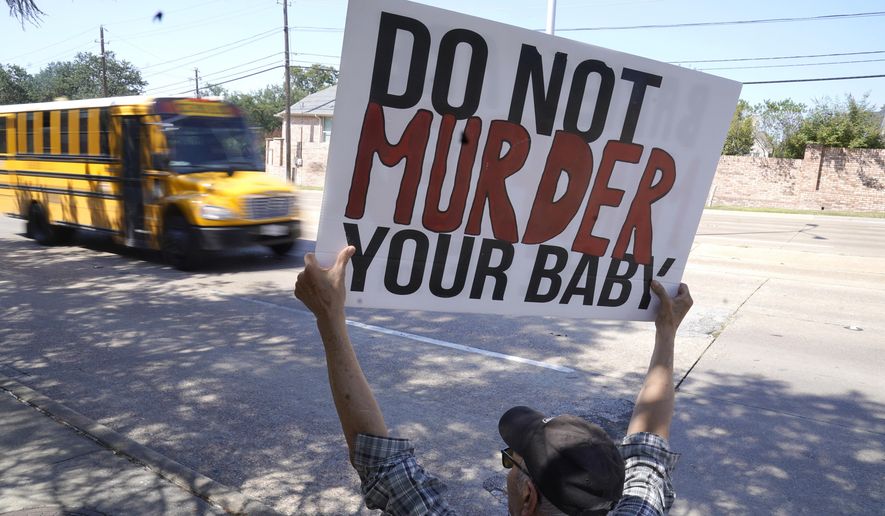The Biden Justice Department on Friday announced it is planning to ask the Supreme Court to block Texas’ abortion law after a federal appeals court refused to do so.
Justice Department spokesman Anthony Coley said Friday that the department intends to ask the high court to reverse the 5th U.S. Circuit Court of Appeals’ ruling granting Texas’ request to halt an injunction put into place by a district court judge this month.
The announcement came just hours after the three-judge panel released its 2-1 decision late Thursday night. Judge James Ho, a Trump appointee, and Judge Catharina Haynes, a George W. Bush appointee, voted to keep the law in place for now, while Judge Carl Stewart, a Clinton appointee, dissented.
The state took its case to the New Orleans-based federal appeals court after U.S. District Judge Robert Pitman, an Obama appointee, blocked the law, siding with the federal government, which argued it ran afoul of federal law granting the national right to an abortion.
The Texas law bans abortion at around six to eight weeks of pregnancy, which is about the time a fetal heartbeat is heard. But the Justice Department argues Supreme Court precedent dating back decades allows women to have an abortion until a fetus is viable, which is usually around 24 to 28 weeks.
Under the Texas law, known as Senate Bill 8, state officials don’t enforce the abortion ban, but private citizens can sue if they have knowledge a provider illegally performed an abortion after a heartbeat was detected.
The Supreme Court declined to block the law’s enactment last month, leaving the legislation in place while litigation against it continues in lower courts.
Abortion providers also have challenged the law — prior to the Justice Department filing its separate lawsuit — and the providers have asked the high court to get involved before a lower court issues a ruling.
That case is pending at the 5th Circuit, and the three-judge panel handling the Justice Department’s lawsuit on Thursday said it would schedule oral arguments to be held alongside the abortion providers’ case before the same judges.
The three-judge panel overseeing the abortion providers’ lawsuit includes Judge Edith Jones, a Reagan appointee; Judge Kyle Duncan, a Trump appointee; and Judge Kurt D. Engelhardt, another Trump appointee.
The Supreme Court, in initially declining to halt the law’s enforcement, did not resolve whether the measure was constitutional, but the court noted the abortion providers fighting it had sued defendants who are not likely to enforce the law.
The abortion providers had sued state and local officials, but under S.B. 8, it would be private citizens bringing the lawsuits against the providers. Anyone who successfully sues someone who assists in an abortion after six weeks would receive at least $10,000 under the law.
Since the Supreme Court decided in 1973 that women had a right to abortion in the case of Roe v. Wade, pro-life advocates and conservative states have aimed to chip away at the ruling.
Texas is not alone in its recent attempt.
The Supreme Court has agreed to decide if Mississippi’s ban on abortion after 15 weeks runs afoul of its Roe ruling during its new term, which began last week. The case will be heard in December, with a ruling expected in June.
Unlike in the Texas case, lower courts blocked the Mississippi law from taking effect, but the Supreme Court agreed to review that move.
• Alex Swoyer can be reached at aswoyer@washingtontimes.com.
• Emily Zantow can be reached at ezantow@washingtontimes.com.




Please read our comment policy before commenting.